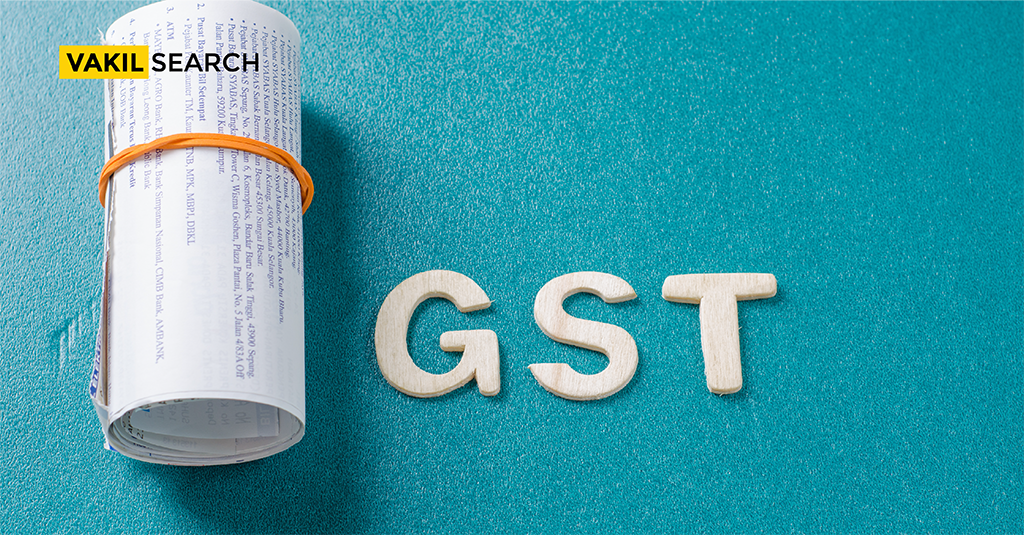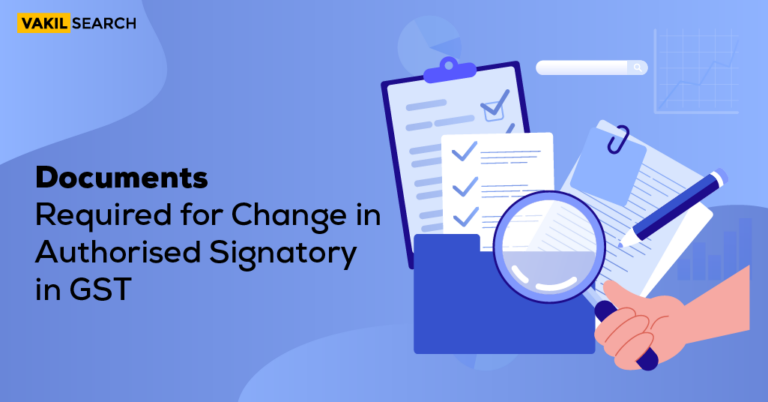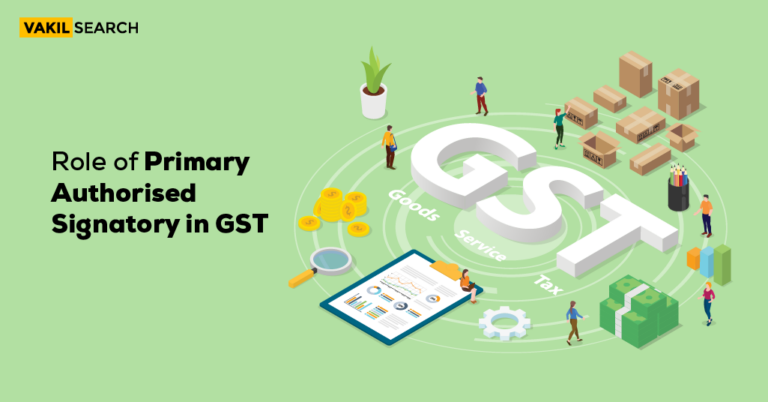This brief synopsis outlines the essential aspects of Goods and Services Tax (GST) for freelancers, emphasising the significance of compliance and efficient business management. Read more about the same
India has emerged as a hotspot for devoted freelancers, and as a result, the freelancing economy has been steadily rising. However, this is an unorganized industry with no clear and defined laws and regulations. GST on freelancers of different professions, bloggers, and consultants make up the country’s freelancing industry.
From food and travel to technology and fashion, freelancing has provided a forum for people to showcase their talents and be their bosses. With the implementation of the Goods and Services Tax (GST), there has been much misunderstanding, and the new tax rules and regulations about this market have been ambiguous.
Freelancers are those who work on many projects while not being employed by anyone. They perform specified jobs under contract and are compensated accordingly. Reading the definition, it is evident that a freelancer is a service provider, and the rules that apply to service providers apply to them as well.
Over time, the freelance industry has evolved to be one of the most profitable in the industry. As a result, it was required by law to be taxed. It is well known that freelancers must acquire GST registration and charge 18% Goods and Services Tax on any money from these services. This applies to those with an annual income of more than ₹20 lakhs.
When is a Freelancer Liable to be Registered?
- When the turnover exceeds the ₹20 lakhs threshold (general cases)
- When the turnover exceeds the ₹10 lakhs threshold (specific cases of North-east states)
- For services classified as Online Information and Database Access and Retrieval (‘OIDAR’)
- In the case of service exports, any inter-state supply of goods/services requires a necessary GST registration. Under the IGST Act, the export of services is referred to as ‘zero-rated supplies’ and qualifies as ‘inter-state supply.’
OIDAR Services are Defined in the GST Act as the Following
- Cloud-based service provision
- Internet marketing Online gaming services
- Provision for online sales of e-books, music, movies, software, and other intangibles
- Providing data or information in electronic form, retrieval or otherwise, to any person via a computer network.
Voluntary Registration
A person can register for GST even if his annual turnover is less than ₹20 Lakh / ₹10 Lakh (in the northeastern states). If a person registers voluntarily, he will be subject to all GST provisions. In other words, he must collect and pay GST, file returns, and so on.
Voluntary registration is advantageous when a person incurs significant expenses on which GST is paid. For example, if a company places ads on Google to attract new customers, a GST of 18% is due. If such a corporation fails to register, such GST cannot be claimed. However, if such a firm registers, it can claim GST credit that can subsequently be utilised to reduce GST payment and may ask for a GST refund (subject to certain conditions).
Providing Service Through Upwork, Fiverr, Freelancer, Guru, etc.
There is no difference in GST laws whether services are supplied through online marketplaces such as Upwork, Fiverr, or Freelancer.com, or directly to clients.
The taxability is as follows:
- When the client is located from outside India, it is called a service export. Check that you have FIRC for any remittances received through Upwork or Freelancer.com. Online platforms typically offer choices for direct bank transfers to India for faster settlement; however, they do not offer FIRC. We recommend that you accept payment by wire transfer or PayPal since they will offer you FIRC, which is a very significant document to confirm the export of services
- When the client is in India -> It is not considered an export of services because the client is in India, and GST is applied on such transactions.
If services are offered through any of the marketplaces, the freelancer is solely responsible for collecting GST. In terms of GST, the marketplace plays no role.
Can a Freelancer Register as a Composite Dealer?
The composition plan is not available to any service provider under the requirements of the Goods and Service Tax Act, 2009. A restaurant service provider, on the other hand, is an exception to the norm. As a result, a freelancer cannot use the composition system.
Stay tax-ready with our GST Calculator Calculate with confidence and optimize your financial strategy effortlessly.
Rate of Tax Applicable on the Freelancers
The GST tax rates are 0%, 5%, 12%, 18%, and 28%. The services will be taxed at the applicable slab rates. If nothing else is mentioned, the applicable tax rate is 18%.
Documents Required for GST Registration
The following documents are required for GST registration:
- Passport photograph
- Identity and address evidence
- Identity and address evidence
- Recent bank statement or canceled cheque
- Your electronic signature
- Telephone or electricity bill
- The lease agreement for office space
- Certificate of No Objection
Invoicing Rules
A freelancer’s invoices should be GST-compliant. The invoice should include all relevant information such as the service provider’s and recipient’s name, address, GSTIN, SAC of services, date, and the value of the service delivered, among other things. You may use Razor pay Invoices to create GST-compliant invoices by following our GST invoice instructions.
What Is the Process for GST Registration for Freelancers?
Registering for GST as a freelancer is a streamlined online process through the GST portal. Here’s a step-by-step guide to obtaining your GST registration certificate:
Part A
- Choose ‘New Registration’ from the GST portal’s drop-down menu
- Complete the application form by entering your business’s legal name (as on your PAN card) and the authorised signatory’s email ID
- Click ‘Proceed’ to initiate the verification process
- Enter the OTP sent to your mobile number and email for verification
- Upon OTP verification, the portal will generate a GST Transaction Reference Number (TRN).
Part B
- Log in to the GST portal and go to ‘Register’ under the ‘Services’ menu
- Click on ‘Temporary Reference Number (TRN),’ enter the generated TRN, and click ‘Proceed.’
- Enter the OTP received on your email and registered mobile number, then click ‘Proceed.’
- Check your application status and use the Edit icon to upload the required documents for GST registration, including photographs, proof of business address, bank details, authorization form, and constitutional documents
- Submit the documents, visit the ‘Verification’ page, and mark the declaration box
- Apply an electronic verification code, digital signature certificate, or e-signing
- Choose the appropriate option and complete the submission to receive an Application Reference Number (ARN) on your registered mobile number and email ID
- Use the ARN to track your GST registration application status, with the registration certificate typically issued within seven days.
The certificate will feature a Goods and Services Tax Identification Number (GSTIN), a unique 15-digit identifier assigned to every freelancer.
Consequences of Not-registering GST
Failure to register for GST when the annual turnover surpasses the threshold can result in significant consequences for freelancers. In such cases, freelancers may face penalties of up to 10% of the tax amount due or ₹10,000, whichever is higher. Additionally, they may be subject to legal actions for non-compliance.
How to Calculate GST for Freelancers
Navigating the Goods and Services Tax (GST) calculations as a freelancer in India can be intricate, yet it is a crucial aspect of business management and legal compliance. To compute GST for your services, follow these steps:
- Determine Supply Value: Begin by establishing the value of your supply, encompassing all charges to your client, such as materials, labour, and overhead costs
- Calculate GST Rate: Freelancers typically face an 18% GST rate. Multiply the determined supply value by 0.18 to ascertain the GST amount
- Include GST in Invoice: After calculating the GST amount, incorporate it into your invoice.
For instance, if your supply value is ₹20,000 with an 18% GST rate, the GST amount would be ₹1,800. Consequently, the total invoice amount for your client would be ₹21,800.
Are the Freelancers Eligible for Input?
The freelancer, like any other taxpayer under the GST, is permitted to claim the input tax credit for services utilised to render services.
For example, they could be providing taxable service by using a laptop, electricity, telephone, and so on. Furthermore, the tax levied by the GST on Freelancers can be considered as input by the recipient of services. As a result, we can assume that the freelancer bears no GST burden and that his fee will not be decreased because he would collect the additional tax amounts from the clients.
Penalties
- A ₹200 late fee will be charged
- There will also be an 18% annual interest charge. This will be computed by the taxpayer based on the amount of tax to be paid
- If the tax is not paid, a minimum penalty of ₹10,000 would be imposed
- The highest penalty for delinquent tax is 10% of the tax amount payable.
Should Returns be Filed?
A total of 25 returns must be made, including two monthly filings and one annual return. Click here to learn more about submitting returns. If a freelancer does not register and pay GST, the government will not be capable of following them.
If TDS is deducted in his case (by the person making payment to him) or through payments in his bank accounts, the department will still be aware of his turnover. Because all accounts are Aadhar and PAN connected, it is difficult to avoid the gaze of the law. We can now see that a freelancer is subject to the Act’s laws, and noncompliance may result in a penalty.
The Tax collected At Source (TCS) Under GST
Section 52 of the CGST Act requires e-commerce operators to collect TCS from individuals selling products or services through them. Because Freelancer.in is registered in India, they are required to collect TCS at the rate of 1% on all payments made through them. However, it is only necessary to be collected from GST-registered individuals. Upwork also collects 1% TCS from all freelancers, regardless of GST registration.
Intellectual property for Freelancers
For freelancers, intellectual property (IP) is any form of the intangible invention of the human intellect that is used in business. Copyright, trademarks, patents, and trade secrets are all examples of intellectual property. As a freelancer, you must be aware of your intellectual property and know how to protect it.
Conclusion
when navigating the complexities of GST, e-filing, and related queries, Vakilsearch stands as a reliable partner ready to assist you. Whether you require specialized services, guidance on GST compliance, or support with e-filing processes, our team at Vakilsearch is well-equipped to cater to your needs. By choosing Vakilsearch , you gain access to a seamless and efficient platform, coupled with experienced professionals who can provide the necessary expertise to ensure compliance with tax regulations. Don’t hesitate to reach out to us today and let us simplify your journey through the intricacies of GST and related services. Your satisfaction and peace of mind are our priorities.
Frequently Asked Questions
Do freelancers need to pay GST?
Freelancers need to pay GST if their annual turnover exceeds the threshold set by the government, which is typically around ₹20 lakhs. However, it varies by state and type of service provided. Registration is mandatory if this threshold is crossed.
What is the tax limit for freelancers?
The tax limit for freelancers is determined by their annual income. They are required to pay income tax on their earnings beyond the basic exemption limit, which is ₹2.5 lakhs for individuals below 60 years, ₹3 lakhs for senior citizens aged 60-80, and ₹5 lakhs for super senior citizens above 80.
Is there GST on IT professionals?
Yes, IT professionals are subject to GST if their annual turnover exceeds the threshold set by the government. Like other freelancers, they need to register for GST if their turnover crosses the specified limit, which is typically around ₹20 lakhs.
Can freelancers avoid tax?
Freelancers are legally obligated to pay taxes on their income. While they can utilize legitimate deductions and exemptions to minimize their tax liability, deliberately avoiding tax payments is illegal and can lead to penalties and legal consequences.
How do freelancers register for GST?
Freelancers can register for GST online through the GST portal by providing necessary documents such as PAN, Aadhar, proof of business ownership, bank account details, and address proof. Once registered, they are required to comply with GST regulations, including filing returns and paying taxes regularly.










